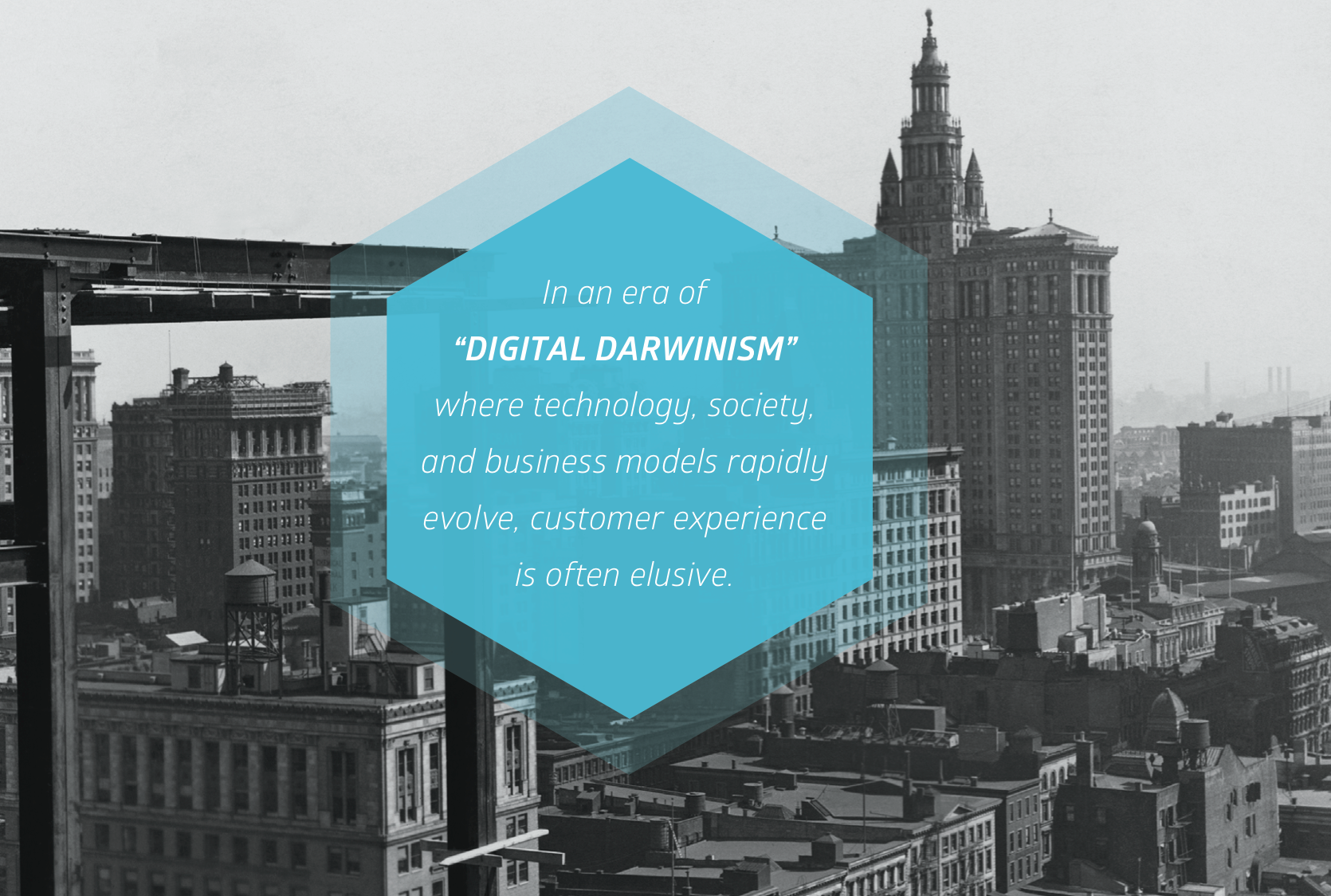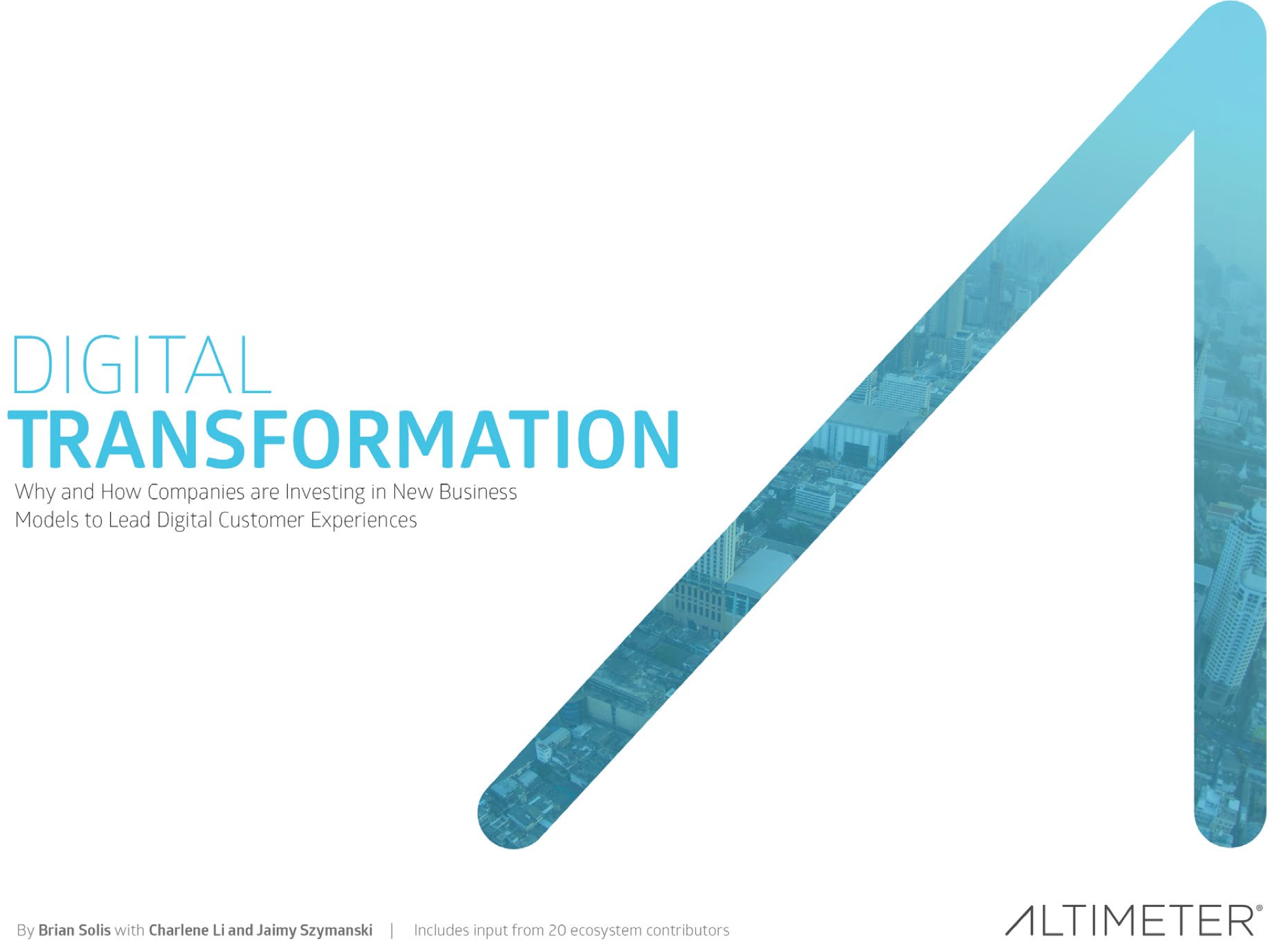We’re under attack! Social, mobile, real-time, cloud, big data…it’s coming at us all at once! Rather than miss out, many brands are jumping from trend to trend as a way of staying relevant in an increasingly digital market.
Facebook, Twitter, Youtube, Foursquare, Instagram, Pinterest…we’re covered. We have and had a strategy for a while now.
Mobile. Yep, we’ve got an app for that…plus we’ve got adaptive and responsive web design that makes old sites new again!
Snapchat…our brilliant strategy vanishes in 5,4,3,2,1.
Jelly? We’ve got the answer.
Whisper, Secret…shhh, don’t tell anyone, but we’re already marketing there.
There’s a difference though between marketing AT people in new channels and learning about their behavior, values, and expectations to optimize their digital experiences and introduce mutually-beneficial outcomes.
Social, mobile, and real-time strategies are not enough. These disruptive technologies are merely just the beginning of a still shaping era of connected consumerism.
Each in its own right is significant affecting how business is done. But customer behavior and expectations, and that of employees for that matter, continue to evolve. And, the list of disruptive technologies that’s pushing business leaders and processes out of their respective comfort zones is far more exhaustive and constant.
When we stop chasing trends and fighting for technology and marketing strategies in the moment, we can appreciate that our view of technology and its aggregate impact on markets is far more massive that we initially realized.
– Wearables
– Maker Movement
– Beacons
– Geolocation
– Internet of Things
– Sharing Economy
– Gamification
– Big Data
– Second Screen
– Virtual AR/AI
– Payments
Instead of reacting to technology trends at departmental levels, some progressive, brave and tireless strategists are investing in a more comprehensive campaign of digital transformation. The goal is to invest in informed models that help businesses recognize opportunities, overcome challenges, and make decisions to stay in step, if not ahead of digital customers. Beyond social, mobile, and real-time, digital transformation is in fact, the next big thing in customer experience and ultimately how business is done.
Over the last year, my Altimeter Group colleague Jaimy Szymanski and I set out to learn how digital technologies are impacting customer behavior and in turn how businesses are responding. Through a series of interviews with digital strategists and executives at some of the world’s leading brands, we specifically explored the role of how this new customer behavior along with the relentless onslaught of disruptive technology is influencing how organizations evolve.
The result is our new report…”Digital Transformation: Why and How Companies are Investing in New Business Models to Lead Digital Customer Experiences.” And, we’re proud to announce that it is now officially available for immediate download here!
Defining Digital Transformation
Altimeter Group defines digital transformation as:
The re-alignment of, or new investment in, technology and business models to more effectively engage digital consumers at every touchpoint in the customer experience lifecycle.
In our research, we learned that digital transformation represents the quest to understand how disruptive technology affects the overall customer experience. The investment in change is a direct result of businesses seeking to adapt to this onslaught of disruptive technologies as they affect customer and employee behavior. As technology becomes a permanent fixture in everyday life, organizations are faced with an increasing need to update legacy technology strategies and supporting methodologies to better reflect how the real world is evolving.
The need to evolve is becoming increasingly obligatory.
We do not tackle enterprise-wide digital transformation in this report. Instead, we conducted our research through the lens of customer experience to learn how companies are adapting to new consumerism. The way today’s consumers use screens and what they expect to accomplish does not mirror traditional customers of the past; their values are shifting, and how they make decisions no longer aligns with a traditional funnel model. Expectations are reshaping engagement and, ultimately, the way their relationships with companies unfold. From social and mobile, to customer insights and journey mapping, to IT and training, digital transformation improves how businesses see their customers and create value throughout their lifecycle.
In our research, we found that understanding the digital customer experience is one of the primary catalysts for businesses placing substantial investment in digital transformation. Change must begin with noting the considerable differences between traditional customer strategies and those required to engage and nurture relationships with digital customers. It creates a sense of urgency and affects not only the roles and objectives of marketing, social media, web, mobile, and customer service, but also their intentions and how these typically disparate groups work toward harmony. The result ultimately makes businesses relevant in a digital era while growing opportunities and profits, as well as scaling efficiently in the process.
As companies begin to invest in digital transformation, they are realizing promising benefits.
Benefits of Digital Transformation
Updated company vision
The company vision is modernized and humanized, which earns support from digital customers.
Thriving culture of innovation
This effort creates buzz within the organization and inspires a company culture of innovation and the ability to innovate in product and service development.
Improved customer journey
Customers continue naturally every step of the their journey, which improves conversions and outcomes.
Greater competitive advantage
Businesses build competitive advantage that executives recognize.
Increased internal collaboration
Collaboration significantly improves between business functions.
Empowered workforce
Leadership and employees feel empowered through education.
Improved efficiency
Decision-making and processes become more efficient across departments.
Deeper data analysis
Better understanding of what/where data is across the organization, which translates into the ability to infer insights and deepen customer analysis to prove ROI.
Increased customer conversions and loyalty
A true 360-degree, seamless customer experience contributes to increased conversions and customer loyalty.
While digital transformation means different things to different people, its concept becomes a mantra for earning relevance and establishing leadership in a digital economy.
Change begins with you…
Please take a moment to download the report now!
Connect with me: Twitter | LinkedIn | Facebook | Google+ |Youtube | Instagram








I really enjoyed the post. I understand that the study was more focused on the consumer side of things, but with the wave of change that is coming with digital transformation, what can larger companies and corporations do to adapt? Implementing these types of wholesale changes can be very difficult especially with the speed in which changes are happening. It will become increasingly interesting to see how companies can react to these changes in marketing and customer interfacing and how their strategies will impact their overall reach with their customers.
Thank you Dan.
Great article Brian ! As head of social media for one of the biggest hotel groups I can confirm that internal training is one of the most important things to do. This starts with your Executive Commitee and goes down to the digital managers in each hotel. We all have to understand that it’s no longer about us but about the customer who talks about brands with his/her friends. Time to read the complete report now 🙂 Cheers, Nico
“The need to evolve is becoming increasingly obligatory.” We most definitely need to embrace change – otherwise we will get nowhere.
The need to evolve technologically is of the essence! I find it amazing how quickly things have transformed just over the past decade! It is amazing to think about a lifetime from now. I think it is important to make sure we do not lose any members of the older generations who are too obsolete from technology. It can also be problematic if younger generations are too absorbed. There must be a balance.